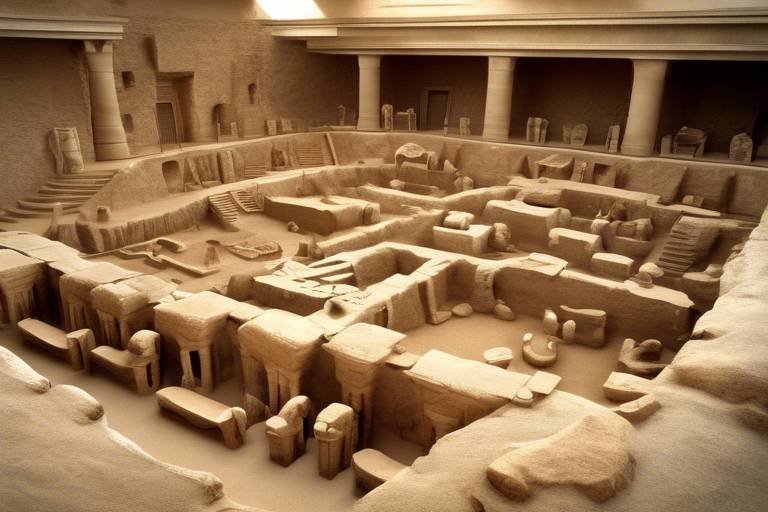The Contributions of Women in Archaeology Throughout History
Women have played a crucial role in the field of archaeology throughout history, making significant contributions to the understanding and preservation of ancient civilizations. Despite facing numerous challenges and obstacles, women have emerged as pioneers and trailblazers in archaeology, leaving a lasting impact on the discipline.

Ancient Female Archaeologists
When delving into the history of archaeology, it becomes evident that women have played a significant role in shaping the field since ancient times. Despite the prevalent societal norms and restrictions, there were pioneering female archaeologists who defied the odds and made remarkable contributions to the discipline.
One such notable figure is Harriet Boyd Hawes, an American archaeologist who excavated the Minoan site of Gournia in Crete in the early 1900s. Her meticulous work and groundbreaking discoveries provided valuable insights into the ancient Minoan civilization, challenging the prevailing stereotypes about women's capabilities in archaeology.
Another trailblazing woman in archaeology was Gertrude Bell, a British explorer and archaeologist known for her extensive travels in the Middle East. Bell's expertise in archaeology and her role in shaping British policy in the region during World War I exemplify the multifaceted contributions of women in the field.
These ancient female archaeologists not only unearthed artifacts and excavated ancient sites but also paved the way for future generations of women in archaeology. Their determination, passion, and dedication to unraveling the mysteries of the past continue to inspire and resonate in the field of archaeology today.

Women in the Golden Age of Archaeology
During the Golden Age of Archaeology, spanning the 19th and early 20th centuries, women played a pivotal role in shaping the field with their remarkable contributions and discoveries. Despite facing societal barriers and gender biases, these pioneering female archaeologists broke new ground and left a lasting impact on the discipline.
One notable figure from this era is Margaret Murray, a British Egyptologist and archaeologist known for her work in Egyptology and the study of folklore. Murray's research and excavations in Egypt significantly contributed to our understanding of ancient Egyptian civilization and religious practices.
Gertrude Bell, an English archaeologist, explorer, and diplomat, also made significant strides during this period. Bell's extensive travels in the Middle East and her archaeological work in Mesopotamia were instrumental in mapping and documenting archaeological sites in the region.
Another prominent female archaeologist of the Golden Age is Dorothy Garrod, a British prehistorian who became the first female professor at the University of Cambridge. Garrod's pioneering excavations in Palestine and Gibraltar revolutionized the study of prehistoric archaeology.
These women faced numerous challenges in a male-dominated field but persevered with determination and passion for archaeology. Their groundbreaking research and discoveries laid the foundation for future generations of female archaeologists and inspired a new wave of interest in the field.

Challenges and Triumphs
Throughout history, women in archaeology have faced numerous challenges and triumphs, shaping their experiences in the field. Despite facing gender discrimination, societal restrictions, and a lack of recognition, women archaeologists have displayed remarkable resilience and achieved significant milestones in the discipline. Their contributions have not only advanced our understanding of ancient civilizations but also paved the way for future generations of women in archaeology.
One of the major challenges women in archaeology have encountered is the persistent gender discrimination prevalent in the field. Historically, women were often excluded from major archaeological projects, denied access to education and training opportunities, and faced skepticism regarding their capabilities. Despite these obstacles, many women persevered and made groundbreaking discoveries that challenged conventional beliefs and expanded the boundaries of archaeological knowledge.
Moreover, the lack of recognition for women's contributions in archaeology has been a recurring issue throughout history. Female archaeologists often had their work overshadowed or attributed to male colleagues, diminishing their achievements and impact on the discipline. Despite these setbacks, women in archaeology have continued to push boundaries, advocate for gender equality, and demand acknowledgment for their valuable contributions to the field.
Another significant challenge for women in archaeology has been the unequal opportunities available to them compared to their male counterparts. Women have often faced barriers to career advancement, leadership roles, and fieldwork opportunities, limiting their professional growth and visibility within the archaeological community. However, many women have defied these limitations, excelling in their research, publications, and advocacy for greater inclusivity and diversity in archaeology.
Despite these challenges, women in archaeology have achieved remarkable triumphs and milestones that have reshaped the discipline. From pioneering excavations to innovative research projects, female archaeologists have made indelible contributions to our understanding of the past and the preservation of cultural heritage. Their resilience, determination, and passion for archaeology have inspired generations of scholars and paved the way for a more inclusive and equitable future for the field.
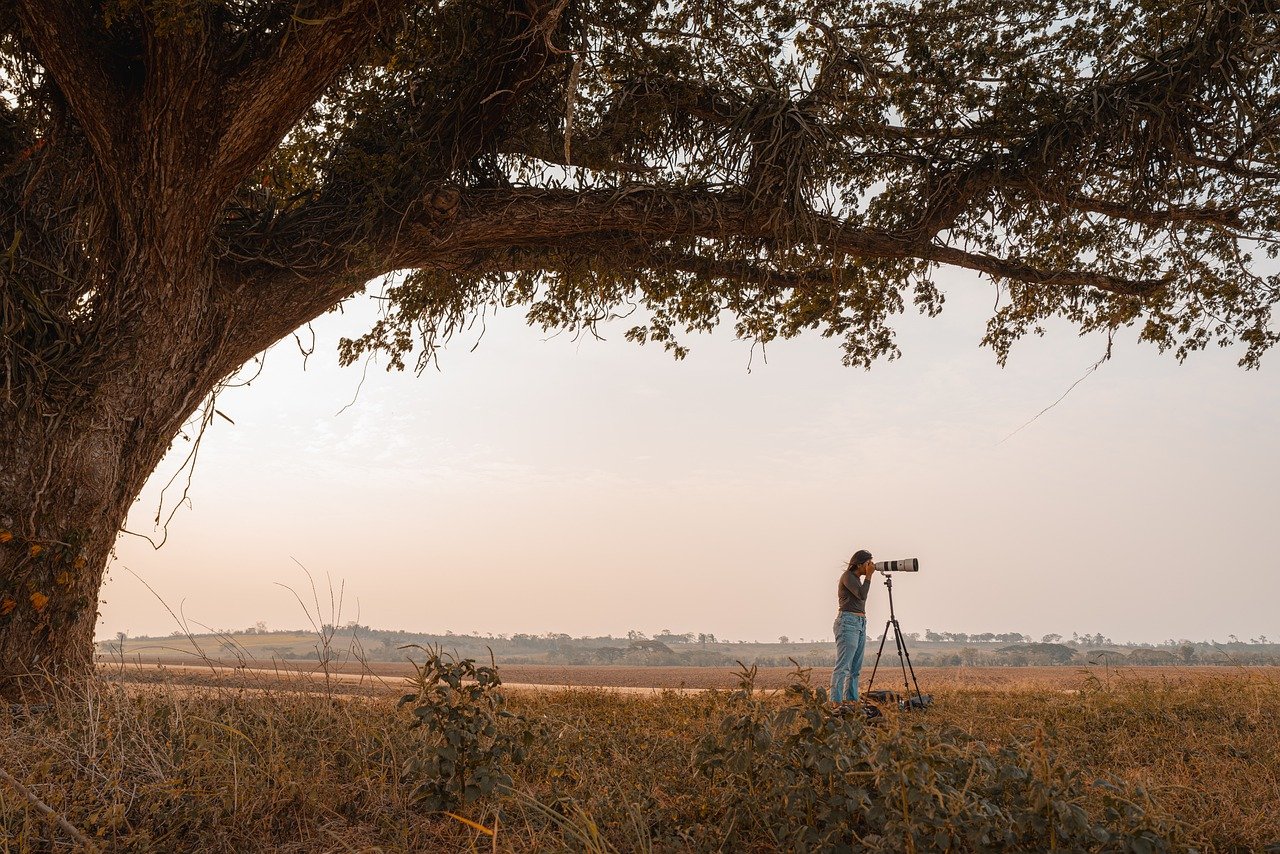
Modern-Day Female Archaeologists
Modern-day female archaeologists are breaking new ground and reshaping the field with their innovative research and leadership. These women are not only excavating ancient sites but also challenging traditional narratives and methodologies in archaeology. Their contributions extend beyond academic research, as they actively engage in community outreach, public education, and advocacy for cultural heritage preservation.

Women in Cultural Heritage Preservation
Women have played a crucial role in the preservation and interpretation of cultural heritage sites, artifacts, and traditions throughout history. Their contributions in cultural heritage preservation are invaluable, as they have been instrumental in conserving the rich history and traditions of various civilizations for future generations to appreciate and learn from.
Women in cultural heritage preservation have been actively involved in the documentation, restoration, and protection of archaeological sites and artifacts. Their meticulous work ensures that these cultural treasures are safeguarded from damage, theft, and decay, allowing them to be studied and enjoyed by present and future generations.
Furthermore, women have been at the forefront of engaging with local communities and raising awareness about the importance of cultural heritage preservation. Through educational programs, outreach initiatives, and public exhibitions, they help foster a sense of pride and ownership among communities, encouraging them to take an active role in protecting their heritage.
In addition to their conservation efforts, women in cultural heritage preservation also contribute to the interpretation and presentation of cultural artifacts and sites. Their expertise in archaeology, history, and cultural studies enables them to provide valuable insights into the significance and meaning of these heritage assets, enriching our understanding of the past.
Women's involvement in cultural heritage preservation is multifaceted, encompassing roles such as archaeologists, conservators, curators, educators, and advocates. Their diverse skills and perspectives bring a holistic approach to heritage conservation, ensuring that cultural treasures are not only preserved but also interpreted and shared with the broader public.
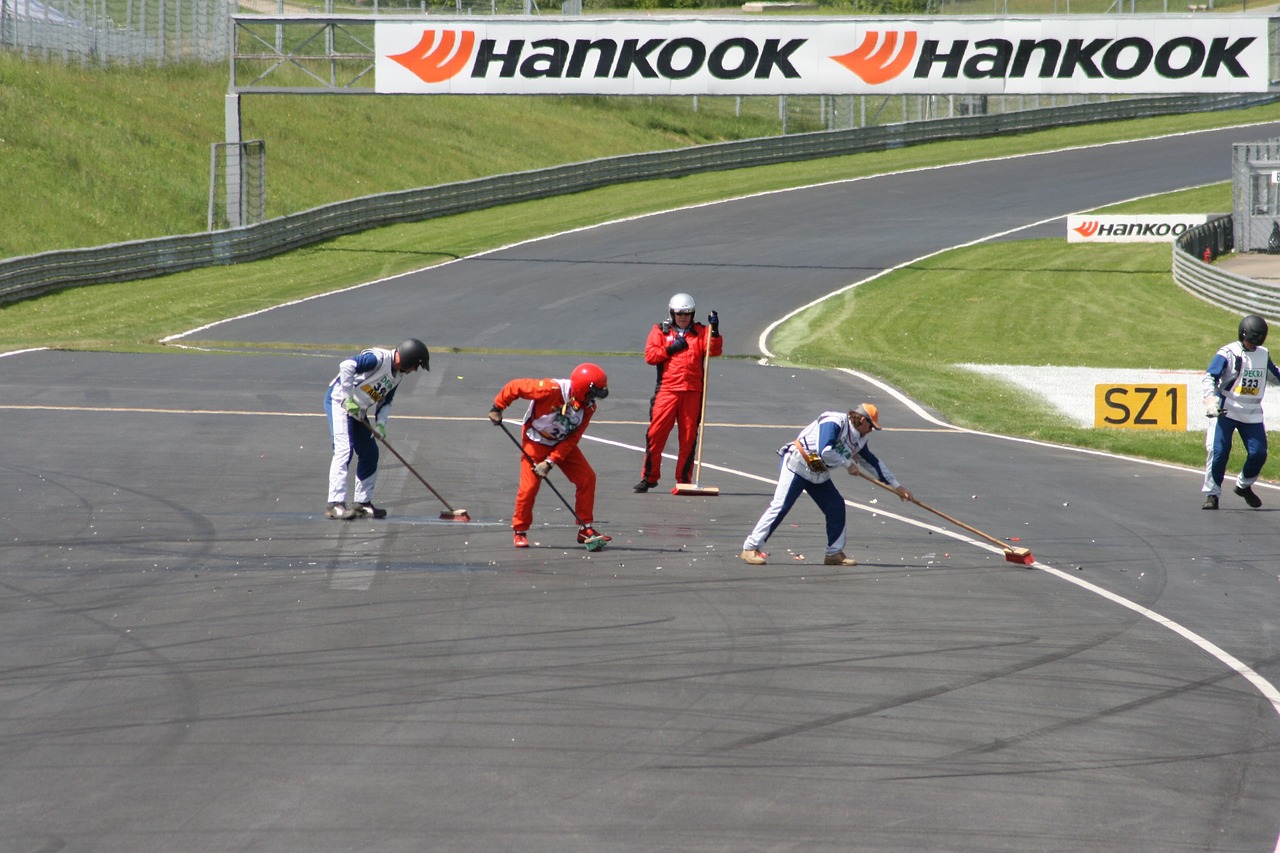
Intersectionality in Archaeology
Intersectionality in archaeology is a concept that acknowledges the multifaceted identities and experiences of women in the field, taking into account various factors such as race, ethnicity, class, and nationality. It recognizes that individuals may face different forms of discrimination and challenges based on the intersection of these identities, influencing their perspectives, opportunities, and contributions to archaeology.
By embracing intersectionality, archaeology can become more inclusive and diverse, allowing for a deeper understanding of the complexities within the discipline. Women from different backgrounds bring unique insights and approaches to archaeological research, enriching the field with a range of perspectives that contribute to a more comprehensive interpretation of the past.
Moreover, intersectionality in archaeology highlights the importance of addressing systemic inequalities and biases that may exist within the field. By recognizing and valuing the diverse experiences of women archaeologists, efforts can be made to create a more equitable and supportive environment that fosters collaboration, innovation, and mutual respect.
Through promoting intersectionality in archaeology, we can amplify the voices of women from marginalized communities, elevate their contributions, and work towards a more inclusive and representative discipline that reflects the richness and diversity of human history.
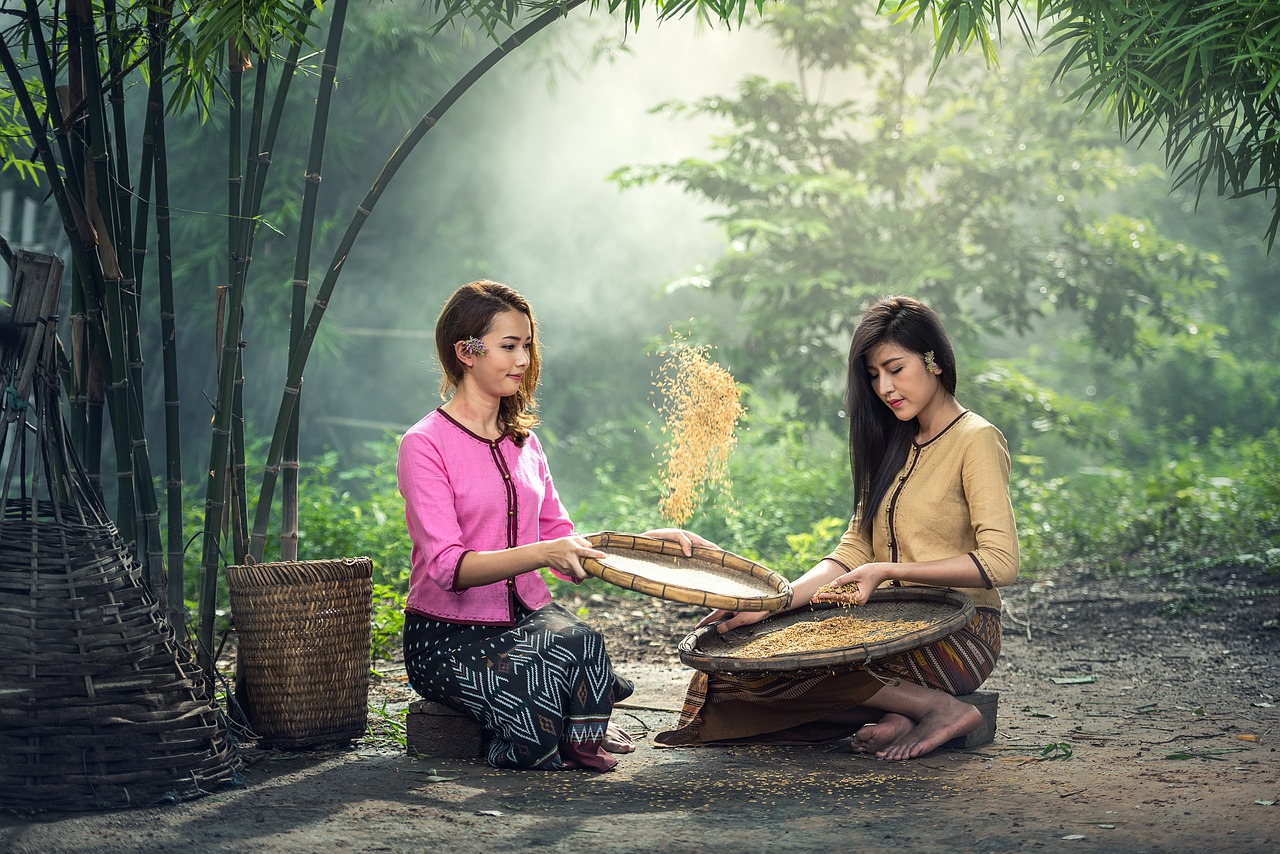
Future Prospects and Challenges
When looking at the future prospects and challenges for women in archaeology, it is evident that significant strides have been made towards achieving gender equity and inclusivity in the field. However, there are still hurdles to overcome to ensure equal opportunities and representation for women in archaeology. One of the key challenges is the persistent gender imbalance in leadership positions within archaeological institutions and research projects. Women continue to be underrepresented in decision-making roles, which can hinder their career advancement and impact on the direction of archaeological research.
Moreover, the issue of gender discrimination and bias in the evaluation of women's contributions to archaeology remains a concern. Women often face barriers in gaining recognition for their work and are sometimes overlooked for prestigious opportunities and projects. Addressing these biases and promoting a fair and objective assessment of women's achievements are essential for fostering a more inclusive and supportive environment for female archaeologists.
On the positive side, the future prospects for women in archaeology are promising, with increasing awareness of the importance of diversity and gender equality in the field. Many organizations and initiatives are actively working to promote women's participation in archaeology, offering mentorship programs, networking opportunities, and support for career development. By nurturing the talents and potential of women in archaeology, the discipline can benefit from a more diverse range of perspectives and approaches to research.
Furthermore, the advancement of technology and digital tools in archaeology presents new opportunities for women to engage in innovative research and interdisciplinary collaborations. Women are increasingly leveraging digital platforms and data analysis techniques to enhance archaeological investigations and share their findings with a wider audience. Embracing these technological advancements can empower women to overcome traditional barriers in the field and contribute to groundbreaking discoveries.
Despite the progress made, there are still challenges to address, such as the need to combat sexism and discrimination in archaeological settings, promote work-life balance for women researchers, and ensure equal access to resources and funding opportunities. By fostering a supportive and inclusive environment that values the diverse contributions of women in archaeology, the discipline can continue to evolve and thrive in the future.
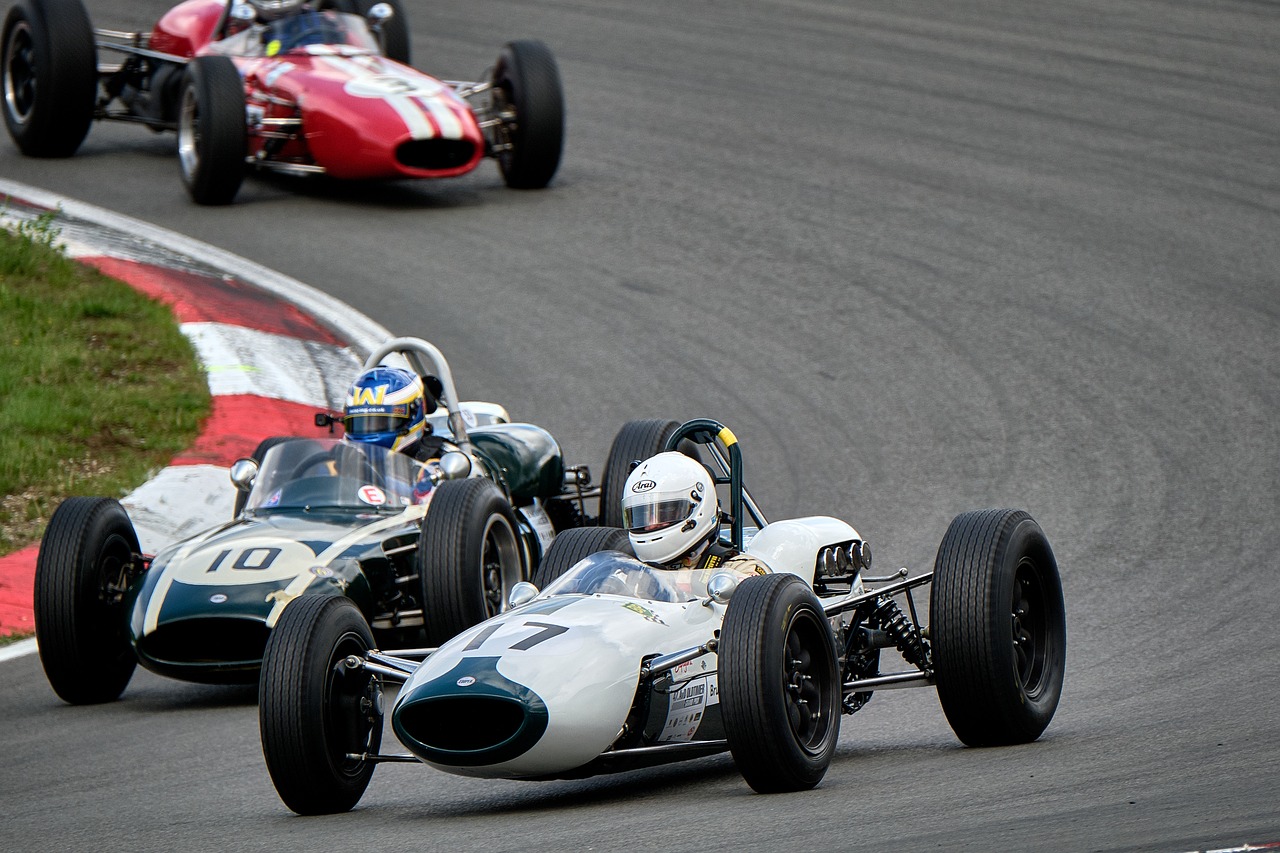
Celebrating Women's Impact on Archaeology
Women have left an indelible mark on the field of archaeology, shaping its course and enriching our understanding of ancient civilizations. Their impact spans across centuries, with each era witnessing remarkable contributions from pioneering female archaeologists who defied societal norms and paved the way for future generations.
From the early days of archaeology to the modern era, women have played a crucial role in unearthing historical treasures, deciphering ancient mysteries, and preserving cultural heritage for posterity. Their passion, dedication, and expertise have been instrumental in unraveling the complexities of the past and shedding light on the diverse narratives of human history.
Women in archaeology have not only excavated ancient sites and unearthed artifacts but have also delved into the intricate layers of culture, tradition, and symbolism embedded in archaeological remains. Their meticulous research, innovative methodologies, and interdisciplinary approaches have revolutionized the field, pushing boundaries and challenging conventional wisdom.
Moreover, women have been at the forefront of cultural heritage preservation, advocating for the safeguarding of archaeological sites, artifacts, and intangible heritage. Their advocacy for conservation, sustainable practices, and community engagement has fostered a deeper appreciation for the importance of preserving our shared past and promoting heritage awareness.
As we celebrate the impact of women in archaeology, we recognize their invaluable contributions to the discipline and acknowledge the barriers they have overcome to make their mark in a historically male-dominated field. Their achievements serve as a testament to resilience, determination, and unwavering passion for unraveling the mysteries of the past.
Looking ahead, it is essential to continue championing gender equality, diversity, and inclusivity in archaeology, ensuring that women have equal opportunities to thrive and contribute to the field. By honoring the legacy of women in archaeology and amplifying their voices, we pave the way for a more equitable and inclusive future for all archaeologists.
Frequently Asked Questions
- 1. What are some notable achievements of ancient female archaeologists?
Ancient female archaeologists made significant contributions to the field by uncovering ancient artifacts, exploring burial sites, and documenting historical findings. Despite facing societal challenges, these pioneering women played a crucial role in shaping our understanding of ancient civilizations.
- 2. Who were some prominent female archaeologists during the Golden Age of Archaeology?
During the Golden Age of Archaeology, notable female archaeologists such as Gertrude Bell, Gertrude Caton-Thompson, and Dorothy Garrod emerged, making groundbreaking discoveries and advancements in the field. Their work laid the foundation for future archaeological research.
- 3. What challenges have women in archaeology historically faced?
Women in archaeology have faced obstacles such as gender discrimination, lack of recognition for their work, and limited opportunities for advancement. Despite these challenges, many women have persevered and achieved remarkable success in the field.
- 4. How have modern-day female archaeologists contributed to the field?
Modern-day female archaeologists have made significant contributions through innovative research, leadership roles, and advocacy for gender equality and diversity in archaeology. Their diverse perspectives and expertise continue to enrich the discipline.
- 5. What is the role of women in cultural heritage preservation?
Women play a vital role in the preservation and interpretation of cultural heritage sites, artifacts, and traditions. Their efforts contribute to the conservation of historical treasures and the promotion of public engagement with our shared heritage.
- 6. Why is intersectionality important in archaeology?
Intersectionality in archaeology recognizes the diverse experiences and perspectives of women from different backgrounds, including race, ethnicity, class, and nationality. By acknowledging these intersections, archaeologists can better understand the complexities of the past and present.
- 7. What are the future prospects and challenges for women in archaeology?
The future of women in archaeology holds opportunities for continued progress in promoting gender equity, inclusivity, and representation in the field. However, challenges such as bias, inequality, and underrepresentation still need to be addressed for true gender parity to be achieved.
- 8. How can we celebrate the impact of women on archaeology?
We can celebrate the impact of women on archaeology by recognizing their invaluable contributions to the study, preservation, and interpretation of cultural heritage. By honoring their legacy and inspiring future generations, we ensure that their achievements are remembered and appreciated.








